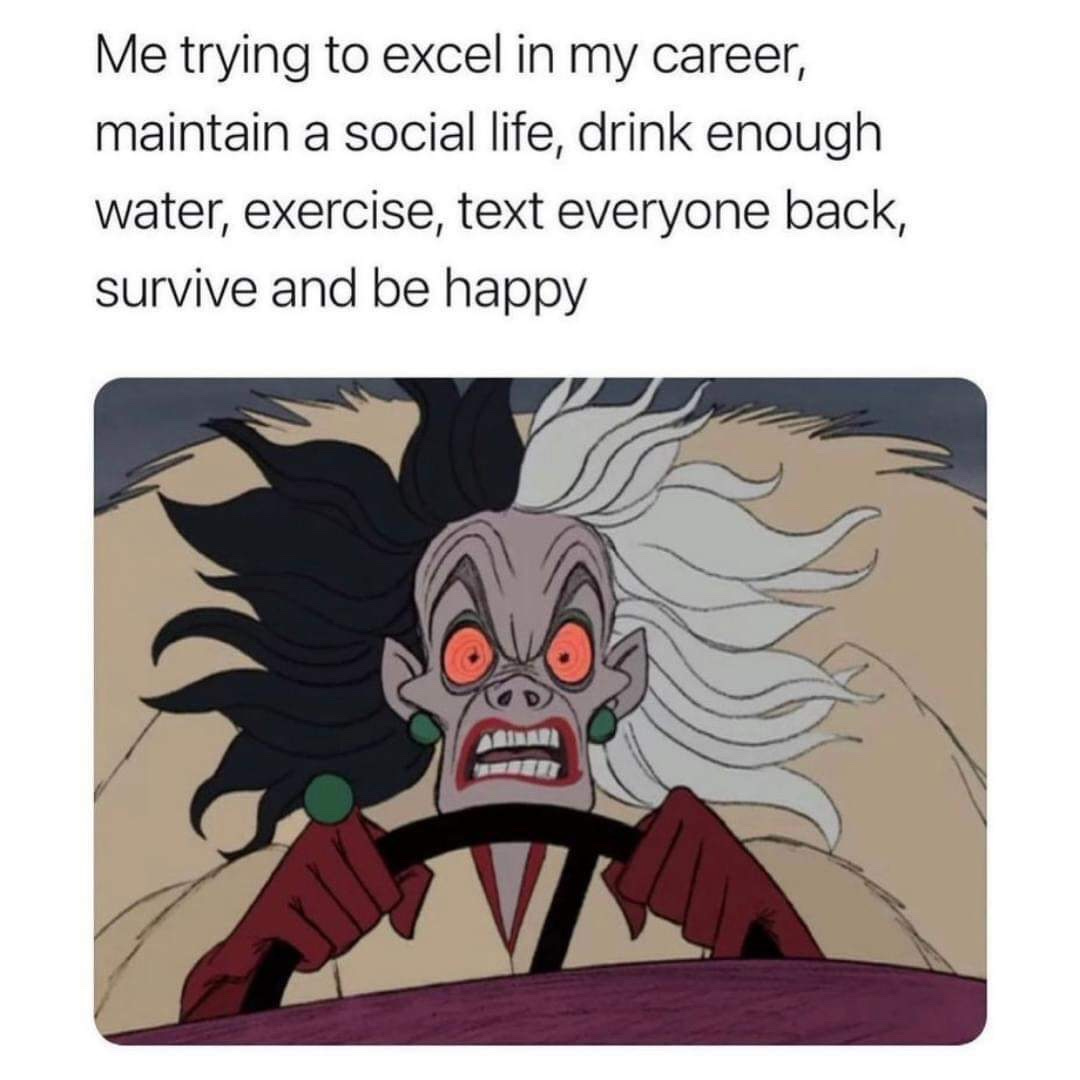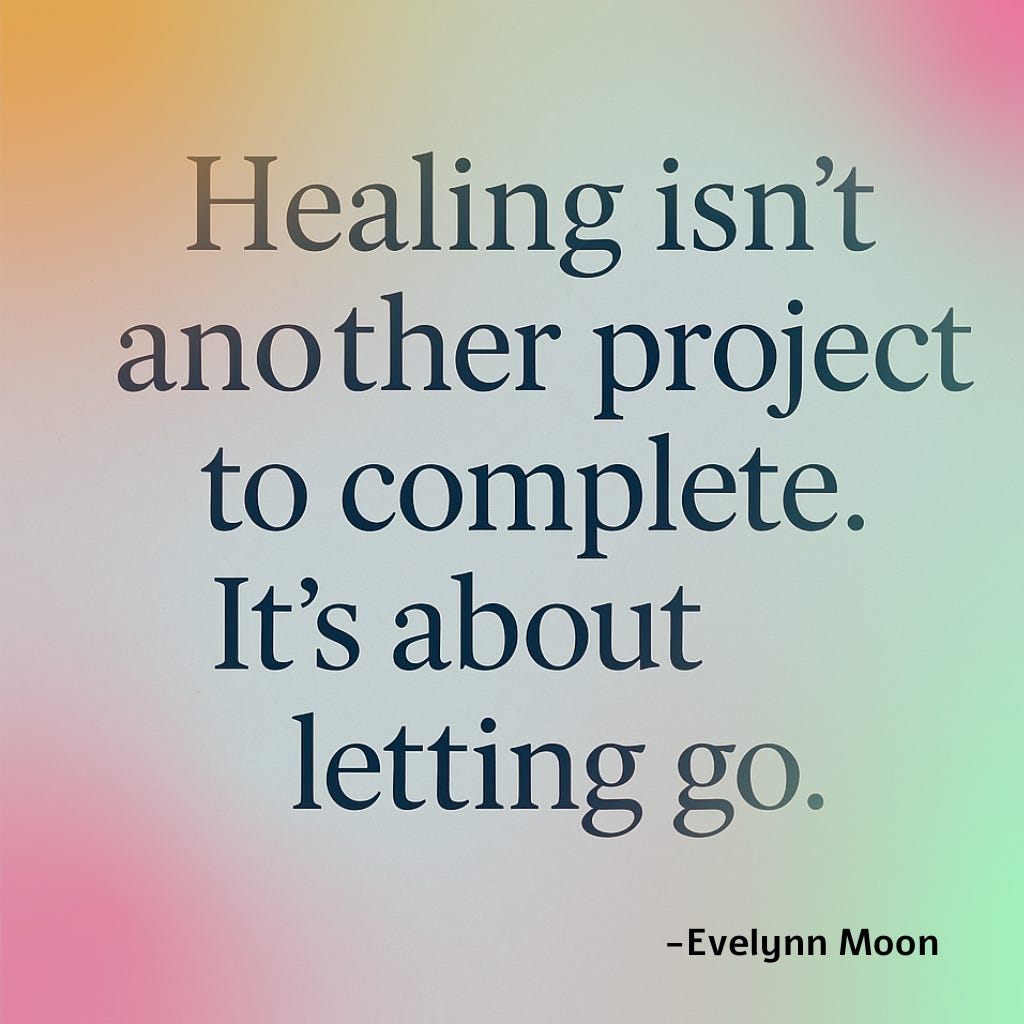Waiting for Time
Reflections on Healing, Control, and Enough
What does it mean to give up control?
It’s a question I’ve been sitting with lately, and not only in the abstract. When you’re confronted with a season of healing, your own or a loved one’s, giving in can sometimes be the only way forward.
Time as Something We Create
In much of Western thinking, time is treated as currency: it is a thing to be spent, saved, or wasted. But in certain African philosophies, time is not a linear commodity. Instead, it’s event-based; created through action, conversation, waiting, and relationship. A season passes not because the calendar flips, but because events have unfolded.
From this perspective, “making time” isn’t about scheduling into a rigid framework. It’s about letting the event itself define the time. Waiting isn’t wasted; it’s part of producing time. Sitting on a porch, talking with a friend, or even doing nothing at all; these are ways of shaping time into being.
We create the time we need and there is always enough.
This way of thinking has been pressing into me as our family navigates a difficult season. We are in a time when healing needs to be our priority, but in our hyper-independent and capitalistic society, time is money (as the old saying goes.)
The Update No One Wants
If you’ve been following along, my husband was in a car accident back in June. Earlier this month, his neurologist told us that swelling is still visible in both the front and back of his brain. It’s affecting his balance and his vision. It’s normal in the world of concussion recovery, but for us, it was jarring.
My husband likes to live his life like he has no limits, physical or otherwise. He never sits still, always moving, always productive. If he isn’t actively doing something, he’s plotting and planning what is coming next. He’s “go big or go home” personified, except in his world, there is no “go home.” For example, he can’t simply mow the lawn, he will do every possible landscaping project that needs to be done in one day (without stopping.)
And yet, here we are, in our 40’s a time when we are slowing down in a variety of ways (my eye doc just prescribed me readers, ahhhh aging!) Couple this with a mild traumatic brain injury (MBTI) aka a concussion and we have a recipe for physical and emotional disaster.
From the beginning, the experts in our lives (hello, nurses!) warned us that this process could take months, maybe a year to resolve. Hearing information from our friends or from me scrolling concussion subreddits didn’t seem to mean much to him. The advice everywhere was: Slow down. Rest. Get off the screens. I discovered conversation upon conversation of mostly men who were adapting to their new reality: sitting on the porch, gardening, taking naps…all things that really aren’t compatible with how life looks right now. His job is all screens, all day. Communication with family is on a screen. And fun? Yep, you guessed it, more screens: tv, laptop, and phone.
Gardening for pleasure has never been on the table, landscaping is work to be done. Sitting on the porch rarely meant being outside without a phone as we shot reels back and forth to each other on Instagram. By the way, sending funny memes and videos IS a love language and I will DIE on that hill.
Family Adjustments
The symptoms are real: headaches, ear ringing, loss of balance. And healing takes time. Not the kind of time you can hurry or push through, but time you have to allow.
I’m trying to take some things off his plate with the help of our daughter. Some of these chores might stay off of his plate, our 6th grader can definitely handle a few more daily tasks. I’m doing the grocery shopping, ramping up my cooking, and loading the dishwasher. While she is taking on unloading the dishwasher and taking out the recycling.
I made it clear that freeing up this time for him doesn’t mean he gets to fill it with new daily chores, regular dusting or toilet scrubbing are not about to become part of his daily routine. Funny enough, as we were brainstorming tasks we could take on, she heard him running the vacuum and ran downstairs yelling, “Daddy, you stop that! We can vacuum!!” He said okay, but as soon as she went back upstairs, he quickly finished up his vacuuming. Old habits die hard.
I had to do the largest shopping trip I had ever done alone. The cart was groaning, items were stacked creatively, even the undercarriage even looked like an expert-level of Tetris. Was I sweating by the time I got home? Yes. Did I free up about 2 hours of his time on a Sunday to rest and heal? Also, yes. So, that’s worth it!
When you get married, this is part of the deal. During my high-risk pregnancy, he carried everything — cooking, cleaning, laundry — while I focused on work and growing a healthy baby. Earlier this year, when I was hospitalized, he stepped up again. Now it’s my turn. That’s love: sometimes you give more, and sometimes you let someone else take things on.
Trusting and letting go.
Part of him letting go means trusting me to make reasonable decisions. Before I had left for the store he said, “Don’t blow the budget”. Sir, I am simply buying what is on the list, I don’t control all of that. I was very good! Only two impulse buys: mangoes and cheese. How could I pass up the world’s best rated cheese of 2025??? I work for many reasons and cheese is one of them.
Enough
And here’s the hard part: doing less, slowing down, waiting, doesn’t feel like enough. Our culture has drilled into us that time must always be maximized. Productivity is virtue. Sitting still is lazy.
But maybe enough looks different than we think. Maybe enough is taking more breaks at work, going for slower walks, or even taking a nap. Maybe enough is letting your partner and child unload the dishwasher while you sit outside with nothing in your hands.
I’m not saying this is a walk in the park for me, I have my own needs, wants, and to-do lists. I have a Mom who is recovering from a major surgery. There’s my niece who needs help applying for college and my daughter who is navigating the transition to middle school. Everything with this car accident and my husband’s recovery can easily feel exhausting, one more thing on top of all of the other things. Sometimes, I feel like this meme:
I have had to make my peace with what my coworker calls “C+ Work”. In life, I’m probably averaging a C+ overall. Some parts are A+ work because they have to be, I can’t skimp on sleep or ignore my own health, but other parts are straying closer to C or even D work. And that is okay for this season! It won’t last forever, priorities will shift, and all of that C and D work is still getting done. For all I know, my C level accomplishments could be someone else’s A. This mindset shift has helped me weather these chaotic times in my home life, while maintaining my career, health, and relationships.
Letting Go to Heal
For my husband, learning to sit with himself is new and uncomfortable. Healing isn’t something he can grind through. It’s not another project to complete. It’s about letting go, about allowing.
And for me, it’s about remembering that waiting isn’t wasting. Time isn’t always spent; sometimes it’s produced. Sometimes love looks like doing, and sometimes love looks like letting go.
Further Reading
African Philosophy of Time
Mbiti, J. S. African Religions and Philosophy. Heinemann, 1969.
Stanford Encyclopedia of Philosophy: African Conceptions of Time
Productivity & “Enough”
Oliver Burkeman, Four Thousand Weeks: Time Management for Mortals (2021)
Tricia Hersey, Rest is Resistance: A Manifesto (2022)
Concussion Recovery
Mayo Clinic: Concussion Symptoms & Recovery



